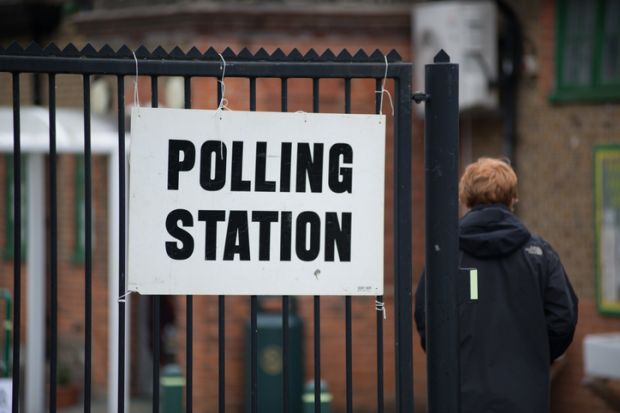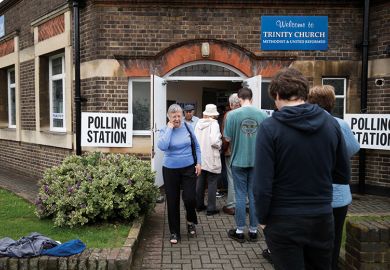A growing electoral turnout gap between graduates and non-graduates risks leaving the UK government exposed to populism, according to a new report.
The study by the thinktank the Institute for Public Policy Research (IPPR) finds that while voting inequalities across age and income have remained broadly the same in recent years, the divide between the number of graduates and non-graduates heading to the polls more than doubled between the 2019 and 2024 general elections.
Turnout among non-graduates was 11 percentage points lower than graduates in last July’s vote, compared with just over 5 per cent in 2019 which was the same as in the 2017 election.
The report finds that Nigel Farage’s Reform UK and the Conservative Party performed better with non-graduates than graduates last year, while the opposite was true for the Labour, Liberal Democrat and Green parties.
In comparison, before 2016, non-graduates were more likely to vote Labour in every election since 1979.
“A growing number of Britons sense they do not have a stake in the collective decision-making endeavour that is democracy,” warns the report.
“This increases the space for populist politicians, who pit ‘the people’ against ‘the elite’, to exploit. They are doing so to ruthless effect.”
It warns that a growing number of Britons over the past 30 years – particularly non-graduates – believe it is not worth voting.
Ryan Swift, IPPR research fellow, said: “The widening turnout gaps between renters and homeowners, and graduates and non-graduates, highlight a glaring blind spot in tackling political inequality.
“To rebuild trust and strengthen democracy, we need bold reforms like votes at 16, automatic registration, and fairer electoral rules.”
Academics have previously highlighted that support for the Conservative Party among graduates is “at its lowest level in at least 45 years”, and that alienating graduate voters will be “fatal to [the party’s] electoral prospects”.
And experts in the US have claimed that the “diploma divide” is the most defining recent shift in voting behaviour in the US since the mid 20th century.
IPPR said the data shows the UK government has a “blind spot” towards combating populism, and urged it to enact democratic reform through an Elections Bill to address growing voting inequalities and revitalise democratic participation.
It proposed making voting easier, more worthwhile, and to create norms of voting by cultivating a stronger culture of democratic participation using state and civic institutions.
This could include extending voting rights to 16- and 17-year-olds and citizenship education at school.
Parth Patel, IPPR’s associate director of democracy and politics, said: “We are close to the tipping point at which elections begin to lose legitimacy because the majority do not take part.
“That should be ringing more alarm bells than it is. We all know that elections aren’t perfect, but they are the only opportunity we get to express a desired future for ourselves and our country as a whole.”
Register to continue
Why register?
- Registration is free and only takes a moment
- Once registered, you can read 3 articles a month
- Sign up for our newsletter
Subscribe
Or subscribe for unlimited access to:
- Unlimited access to news, views, insights & reviews
- Digital editions
- Digital access to THE’s university and college rankings analysis
Already registered or a current subscriber?








